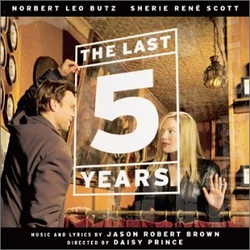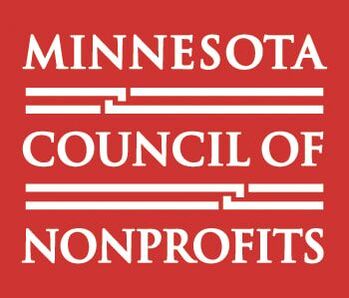 As Savage Umbrella gears up for our upcoming workshop of Rain Follows the Plow by Rachel Nelson, we wonder about others who workshop publicly. Here, SU company member Blake Bolan talks with Nautilus Music-Theater’s Artist Director Ben Krywosz about the long-running Nautilus series Rough Cuts. BB: How did Rough Cuts get started? BK: Well, it actually began as a concern - Karen Miller and I felt, the two of us who were co-artistic directors, and this was back when we were the New Music Theater Ensemble, and the idea of concern at the time was that we didn’t do productions very often, maybe one a year, and in between times, there was not much of a public presence. Although we hadn’t really defined ourselves as a traditional opera company, we knew that for funding purposes and support from the community, we needed to be more visible. At the same time, we had a lot of projects going on, amongst the activity, that was behind the scenes, training singer-actors or developing new pieces, so we thought if there was a way we could overlap these, maybe we could be more visible and in the public, so we started this concert series. Originally, we started with one night a week, it was either a Monday or a Tuesday, and we talked about calling it the Tuesday Night Series. For the first year, it was only one night, rather than two nights. We kicked around a number of different names for the series, what we would call it that would somehow capture the flavor of what it was going to be, which is simply to present whatever we happened to be working on at the time. At one point, for a couple of days we were actually thinking about calling it Foreplay. But I think cooler heads prevailed, and we came up with Rough Cuts. But that’s how we got started and the first one was a reading of a piece we were preparing for production, in January ‘95, and the production was scheduled for May of ‘95, called Hearts on Fire. That particular one had two nights, the very first one had two nights, by virtue of the fact that it was double cast. We had each of the two performers do one reading. From that point on, the rest of that year, ‘95, we had just one night a week, and I think we only did 6 that first year. There were a couple of projects that we had going, in fact one of them, I think in May, right before the production, we did a presentation about Hearts on Fire, that included the set designer and I talking with the audience about the designer and I devising our concept and so forth. BB: I guess you’ve sort of answered my second question, which is how you define the series. It’s a possibility to show off whatever you’re in the middle of working on as a group. At this point, you’ve extended it beyond just what you are working on as Nautilus, and you go beyond that to Nautilus-related artists, and showcase what they’re working on as well? BK: Well, what happened was, things evolved pretty quickly, so that before too long, and I’m not quite sure, it happened pretty quickly, even during that first year, once we started doing it, it became an opportunity to use it as a stand-alone project. In addition to presenting works that we were working on ourselves, then we could create projects specifically for Rough Cuts, so that there would be an opportunity for performers to try things out for their own sake, or to offer the Rough Cuts venue for artists who were working on things not with us, that anybody who was working on any kind of music theater could then use the Rough Cuts as a venue to explore. And that’s what it has become. Now, we use it if we’re working on a project and want to present something, we do that - in the Rough Cuts in April we’re going to be presenting a piece that I want to take to full production. We may make some tweaks to it, but in general, it’s an existing piece. On the other hand, in the last Rough Cuts, with Empire Builder and Kingdom Undone, both of them are pieces we’re not directly developing ourselves. I will give them some input and ideas, but they’re not related to our particular developmental activities. BB: You’re helping to produce them in a sort of workshop capacity. BK: Yeah, giving them an opportunity to hear what they have so far. In that sense, it is a pretty altruistic activity. We don’t get anything out of it, on one level. Anything that we develop or support as a developmental project, we don’t take any kind of ownership over. BB: You’re helping to strengthen community in a certain way. BK: Yeah, exactly. In the long run, it benefits everybody that this work is done. BB: Could you give a quick overview of what sort of variety there’s been over the years in Rough Cuts, what kinds of pieces you’ve seen? BK: Well, we’ve had sort of classic musicals that we have produced, like Into the Woods, and Man of La Mancha, and Carousel. We’ve done readings like that. We’ve done readings of contemporary operas like El Nino, or Dead Man Walking. We have occasionally done more classical work, like Schubert’s Winter Journey or Janacek’s Diary of Ones Who’ve Vanished. We’ve done rarely performed work, like Evening Primrose by Sondheim. Gosh, there’s just so much. We’ve presented single artists who are working with producing music, like Gunnar Madsen from The Bobs, Leslie Ball, a local singer-songwriter, Gary Rue. We do song cycles, international music and classical music, we’ve done projects where the singers have initiated something that they wanted to do. We’ve done works that we’ve commissioned ourselves, like all of the Sister Stories, that we’ve done in Rough Cuts over the last ten years. When you go through the list, and start to categorize the various types of pieces, we’ve done presentations from the Composer-Librettist studios, we’ve done some projects that are thought of as audience development projects, in the sense that it’s providing - I don’t want to use the word academic - like in late ‘99 or early 2000, we did ‘100 Years in Musical Theater,’ where we took one song from one piece from each decade from the 1900s to 2000, and we did a sort of survey of Irving Berlin to Phillip Glass, giving a view of American music theater. BB: From my perspective, I like seeing those things in that sort of context where you see how things grow and change. Not that each one of those pieces is necessarily the model of what was happening in that decade, but just to see how quickly things can change. BK: Well, exactly. Certainly it’s audience education, initially, when we do that kind of a program. We’ve done classic works, full length pieces of recent works by Zoe Collins, or The Last Five Years, or Wings, various works in progress. We did do, in October 2006, we did a program called Rough Cuts 100, our 100th Rough Cuts, which was a survey, kind of a retrospective of Rough Cuts where we took 10 or 12 performers who’d performed most often in Rough Cuts and did a whole program of that, which was pretty interesting. We’ve presented work by artists from out of town, bringing them in from New York or elsewhere... Mostly it’s been work developed by local singer-actors. We commissioned Week 35 of a Suzan Lori Parks piece, part of 365 Days/365 Plays, and we’re going to do something in October or November for the President Project, a national thing. BB: What interests you about doing new work? BK: Well, part of it is that it’s interesting to work on something without a history because it opens up more creative possibilities interpretively, than having to resort to the ways things are normally done with a particular piece, but I think more importantly it has to do with connecting to the world in which I live. These contemporary artists are my colleagues, my peers, and they’re the ones that are making these new pieces, and as much as I love traditional opera and musicals, I often ask the question, what kind of work is being created by the people that are in my life now, and it just makes a place for a more immediate connection to my own time and place. BB: You’re not having to go all the way back the dramaturgy and history of the original piece to connect with the people right now. BK: Well, those pieces were created in a very different time and place, and not my time and place, and there’s much to be learned from that, it’s not a matter of an either/or situation. I think then when you see the whole list of things we’ve done, you’ll see that what we’ve done is honor the past in order to explore the future. BB: If you had to take a stab, how many people do you think that you’ve worked with - writers, composers, performers - within Rough Cuts? BK: When we did Rough Cuts 100, we made a list of everyone we’d worked with, and that was in the program. Just as an example, we worked with about 280 singers as of the 100th Rough Cuts, which was in November of 2006. We’re at somewhere around Rough Cuts 137 or 138 now. BB: So, can you tell me about any Rough Cuts piece that eventually became a fully realized production? BK: One of the things that’s happened, of course, is that many of the pieces we’ve done have gone on to a production by other companies, and that’s a good thing that should be acknowledged. Hearts on Fire, Silver Tongues:Poison Lies was done by the Illusion, Three Visitations we produced, Rites of Passage we produced, Inner-City Opera was produced by History Theater, Photograph was produced by Actors’ Theatre, Kalevala was produced at the Southern Theater and then later at the Guthrie, Conversation Hearts was produced by Illusion Theater, we produced Into the Woods... BB: I’m also curious about something that you produced later, after having done it in Rough Cuts, what it was like having those two experiences with the same material. BK: Every show that we’ve produced since 1997 was performed in Rough Cuts, at least excerpts from it were. I guess in terms of the differences, doing it in Rough Cuts first is a great way to learn the piece, and to figure out what it was, if it was an existing piece that needed some research and understanding and conceptual problem solving before we got into rehearsal, or if it was a new piece that needed hearing while it was being created. So some of the pieces that we’ve done, all of the new pieces we’ve developed that have gotten full productions have gone through Rough Cuts; all four Sister Stories, Untold Lies, Twisted Apples, those are all pieces that were done in Rough Cuts. The existing pieces that we’ve done like Orpheus and Eurydice and Alice Unwrapped, those were all done in Rough Cuts, in order to understand the piece, to get the cast familiar with the material, and mostly the cast, 95% of the time the cast will go on from the Rough Cuts to the full production, because it was part of our development process either making the piece or making the production. Coming up in April’s Rough Cuts: The View From Here by Timothy Huang, performed by Joel Liestman and Jerry Rubino Yarrrgh! The Lusty, Busty Pirate Musical by Daniel Pinkerton and Chris Gennaula April 9th, 7:30 at the Nautilus Studio, 508 Prince Street, St. Paul April 10th, 7:30, location TBA (in Minneapolis) $5 suggested donation, free milk and cookies from the Cookie Cart at intermission Comments are closed.
|
Archives
November 2020
|

 RSS Feed
RSS Feed




